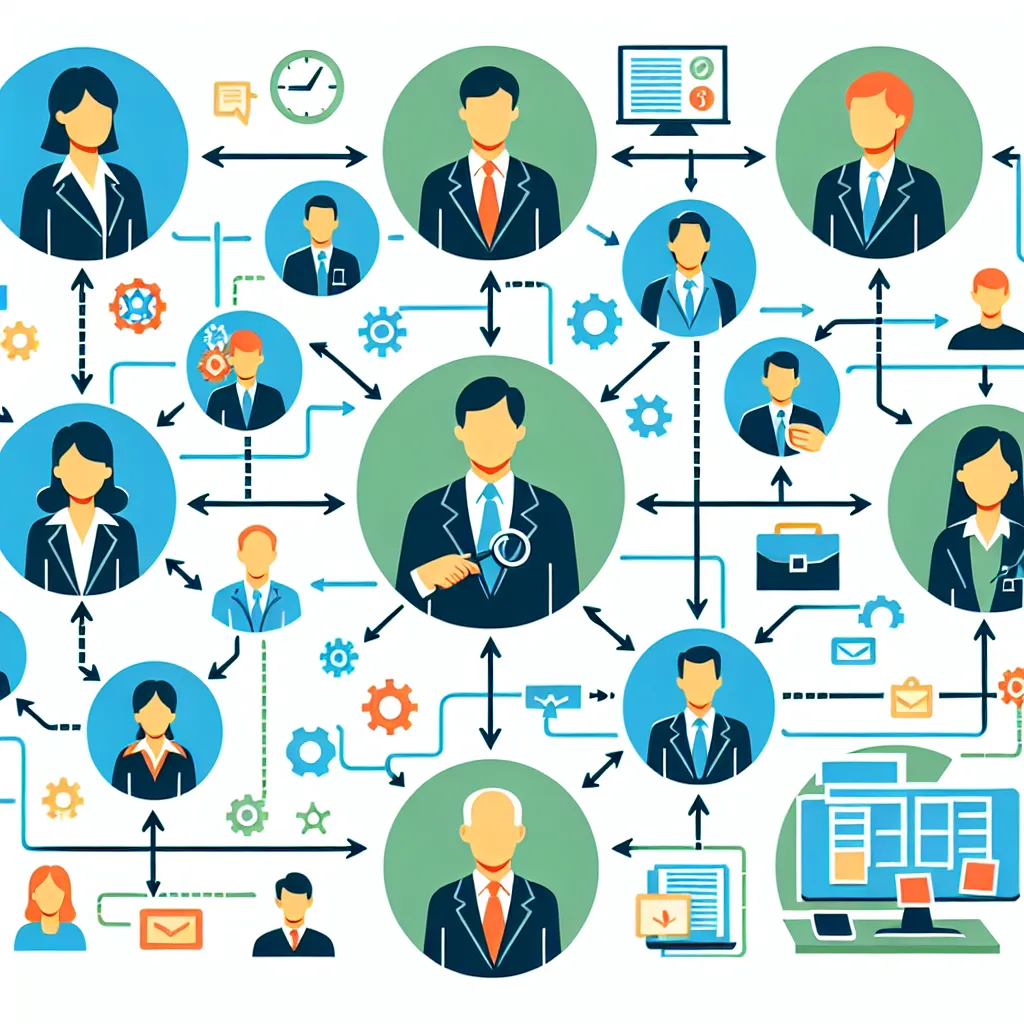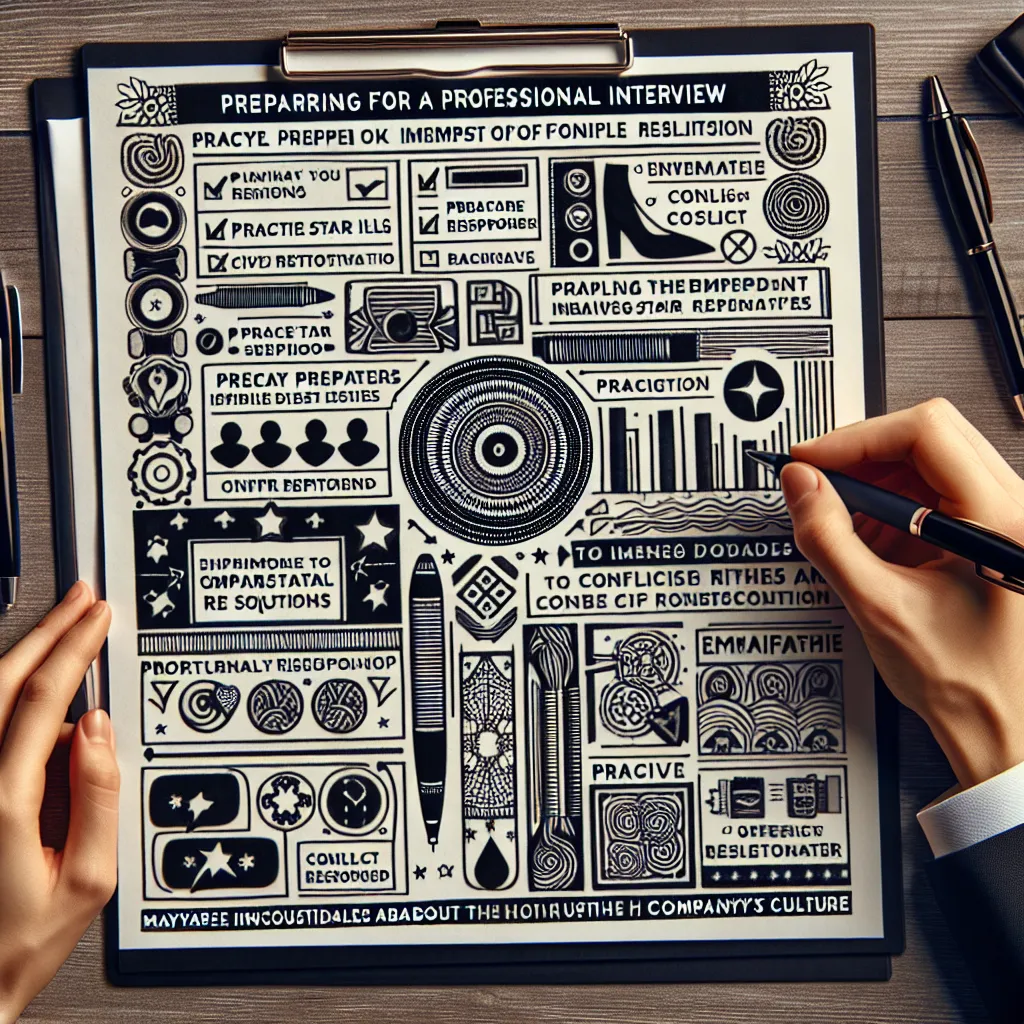Professional relationships play a crucial role in any workplace, and interviewers often ask questions about them to assess your interpersonal skills and ability to work well with others. Being prepared to answer these questions effectively can significantly improve your chances of success in a job interview. This article will guide you through the process of answering questions about professional relationships, providing valuable insights and practical examples to help you impress your potential employer.
Understanding the Importance of Professional Relationships
Professional relationships are the connections and interactions you have with colleagues, supervisors, clients, and other stakeholders in your work environment. These relationships are fundamental to creating a positive work atmosphere, fostering collaboration, and achieving organizational goals. When interviewers ask about professional relationships, they are trying to gauge your ability to:
- Communicate effectively
- Work as part of a team
- Handle conflicts and disagreements
- Build and maintain rapport with colleagues and clients
- Contribute to a positive work culture
 Professional Relationships Diagram
Professional Relationships Diagram
Common Interview Questions About Professional Relationships
To help you prepare, here are some frequently asked questions about professional relationships, along with sample answers and explanations:
1. How do you build and maintain professional relationships?
Sample answer: “I believe in building professional relationships through open communication, mutual respect, and trust. I make an effort to get to know my colleagues on a personal level while maintaining appropriate boundaries. I also prioritize active listening and showing genuine interest in others’ ideas and perspectives. To maintain these relationships, I consistently follow through on commitments, offer help when needed, and express appreciation for others’ contributions.”
Explanation: This answer demonstrates your understanding of the key elements of strong professional relationships and shows that you take a proactive approach to fostering positive interactions in the workplace.
2. Can you describe a time when you had to work with a difficult colleague?
Sample answer: “In my previous role, I worked on a project with a colleague who had a very different communication style than mine. Initially, this led to some misunderstandings and tension. To address the issue, I initiated a one-on-one conversation with them to better understand their perspective and explain my own. We agreed on a communication plan that worked for both of us, which included regular check-ins and clear expectations for deliverables. By the end of the project, we had developed a strong working relationship and even sought opportunities to collaborate on future projects.”
Explanation: This response showcases your ability to handle conflicts professionally, adapt to different working styles, and turn challenging situations into positive outcomes.
3. How do you handle disagreements with your supervisor?
Sample answer: “When I disagree with my supervisor, I approach the situation with respect and professionalism. I first try to understand their perspective fully by asking clarifying questions. Then, I present my viewpoint with supporting evidence or reasoning. I focus on finding a solution that aligns with the company’s goals rather than proving who’s right or wrong. If we can’t reach an agreement, I’m willing to defer to their decision while expressing my concerns constructively. I believe that open and honest communication is key to maintaining a positive relationship with supervisors, even during disagreements.”
Explanation: This answer demonstrates your ability to handle potentially sensitive situations diplomatically while maintaining respect for authority and prioritizing the company’s interests.
4. How do you contribute to a positive team dynamic?
Sample answer: “I contribute to a positive team dynamic in several ways. First, I strive to be reliable and meet my commitments, which builds trust within the team. I also actively participate in team discussions, offering ideas and encouraging others to share their thoughts. I’m quick to recognize and appreciate my colleagues’ contributions and successes. Additionally, I try to maintain a positive attitude, even during challenging times, and offer support to team members who may be struggling. Lastly, I’m always open to feedback and continuously work on improving my communication and collaboration skills.”
Explanation: This response highlights your commitment to being a supportive and proactive team member, demonstrating your understanding of the factors that contribute to a positive work environment.
Tips for Answering Questions About Professional Relationships
- Use the STAR method (Situation, Task, Action, Result) when providing examples of past experiences.
- Focus on positive outcomes and learning experiences, even when discussing challenges.
- Emphasize your ability to adapt to different personalities and working styles.
- Highlight your communication skills and emotional intelligence.
- Show that you value teamwork and collaboration.
 Interview Preparation Checklist
Interview Preparation Checklist
Common Mistakes to Avoid
When answering questions about professional relationships, be careful to avoid these common pitfalls:
- Speaking negatively about former colleagues or supervisors
- Downplaying the importance of teamwork or collaboration
- Failing to provide specific examples to support your claims
- Overemphasizing your own contributions without acknowledging others
- Appearing inflexible or unwilling to adapt to different working styles
Follow-up Questions and Sample Answers
Here are some additional follow-up questions you might encounter, along with suggested responses:
-
Q: How do you handle receiving constructive criticism?
A: “I view constructive criticism as an opportunity for growth. I listen attentively, ask for specific examples, and thank the person for their feedback. Then, I develop an action plan to address the areas for improvement and follow up to ensure I’m making progress.” -
Q: How would you approach integrating into a new team?
A: “When joining a new team, I’d start by introducing myself to each team member and learning about their roles and responsibilities. I’d observe team dynamics and communication styles, and ask questions to understand established processes. I’d also seek opportunities to contribute early on while being respectful of existing team norms.” -
Q: Can you describe a situation where you had to manage expectations with a client or stakeholder?
A: “In my previous role, I had a client who requested features that were outside the project scope. I scheduled a meeting to review the project objectives and timeline, explaining the impact of additional features. We negotiated a prioritized list of features, agreeing on what could be delivered within the current project and what would need to be part of a future phase. This approach maintained a positive relationship while ensuring realistic expectations.” -
Q: How do you handle a situation where a team member isn’t pulling their weight?
A: “I’d start by having a private conversation with the team member to understand if there are any underlying issues affecting their performance. If needed, I’d offer support or resources to help them improve. If the problem persists, I’d document the issues and involve a supervisor or HR, focusing on how the situation impacts team goals rather than personal criticisms.” -
Q: How do you build relationships with remote team members?
A: “For remote team members, I make an extra effort to stay connected through regular video calls and instant messaging. I initiate casual conversations to build rapport, just as I would in an office setting. I also ensure that remote team members are included in all relevant discussions and decisions, and I advocate for their contributions to be recognized by the wider team.”
Conclusion
Mastering the art of answering questions about professional relationships can significantly enhance your performance in job interviews. By demonstrating your ability to build and maintain positive workplace relationships, you show potential employers that you’re not only qualified for the job but also a valuable addition to their team. Remember to prepare specific examples, focus on positive outcomes, and highlight your interpersonal skills. With practice and preparation, you’ll be well-equipped to tackle any questions about professional relationships that come your way.
For more interview preparation tips, check out our articles on how to answer questions about conflict management and how to answer questions about interpersonal skills.




